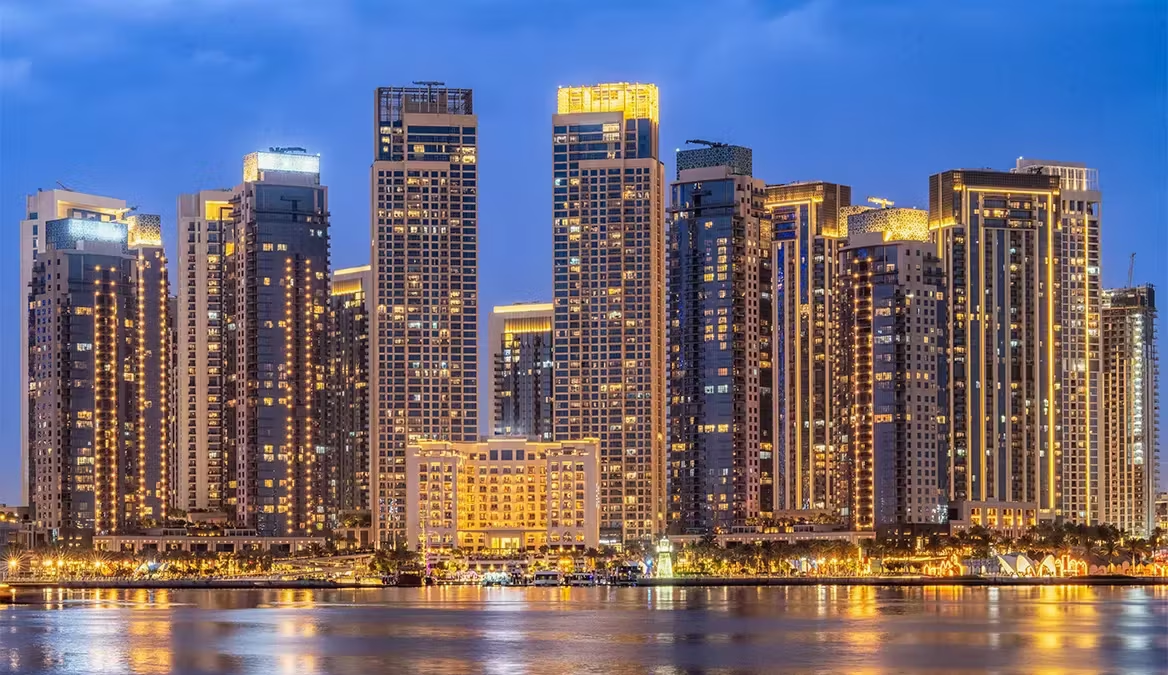Now Reading: Dubai’s Short-Term Rentals Are Changing Real Estate Forever
-
01
Dubai’s Short-Term Rentals Are Changing Real Estate Forever
Dubai’s Short-Term Rentals Are Changing Real Estate Forever

In the past few years, short-term rentals in Dubai have exploded in popularity. From stunning apartments in Downtown Dubai to cozy homes near Jumeirah Beach, platforms like Airbnb, Booking.com, and Dubai-based Holiday Homes companies are making it easier than ever for travelers to book unique stays.
But while tourists enjoy this flexible travel option, real estate experts and landlords are asking a big question: Is the rise of short-term rentals disrupting Dubai’s property market?
Let’s explore how this growing trend is reshaping the real estate industry—and what it means for investors, landlords, and residents.
What Are Short-Term Rentals?

Short-term rentals refer to properties that are rented out for a few days to a few months, instead of the traditional year-long lease. Tourists, business travelers, digital nomads, and even locals use short-term rentals for flexibility, comfort, and a “home away from home” feel.
In Dubai, these types of rentals are legal and regulated by the Department of Economy and Tourism (DET). Property owners must obtain a holiday home license before listing their units on rental platforms.
Why Are Short-Term Rentals Booming in Dubai?

Dubai’s rise as a global travel hub has fueled the demand for short-term accommodations. Here are a few reasons why this trend is growing so fast:
- Tourism Growth: In 2023 alone, Dubai welcomed over 17 million visitors, and this number continues to climb in 2024. Many travelers prefer short-term rentals over hotels for more space, privacy, and cost savings.
- Work from Anywhere Culture: With remote work on the rise, digital nomads are choosing Dubai for its lifestyle, weather, and high-speed internet. They need flexible housing options, making short-term rentals ideal.
- Investor-Friendly Policies: Dubai offers tax-free property income, a safe investment climate, and high rental yields—especially in short-term markets.
- Major Events and Expos: International events like Expo 2020, COP28, and regular conferences at the Dubai World Trade Centre increase demand for temporary housing.
How It’s Impacting Dubai’s Real Estate Market
The rise of short-term rentals is shaking up traditional real estate patterns. Here’s how:
1. Higher Rental Yields for Owners
Property owners who switch from long-term leases to short-term rentals are seeing 15-30% higher returns, especially in high-demand areas like Marina, Downtown, and JVC.
2. Less Inventory for Long-Term Renters
With more units moving to the short-term market, fewer options are available for residents looking for long-term housing. This shortage can drive up rental prices.
3. Increased Competition with Hotels
Short-term rentals now compete directly with Dubai’s luxury hotels. Some travelers prefer apartments with kitchens and living rooms, especially for longer stays or family trips.
4. Quality Control and Regulation Challenges
The Dubai government has set clear rules for holiday homes, but not all landlords follow them. Issues like poor service or unauthorized listings could harm the city’s tourism image if not controlled.
The Pros and Cons of Short-Term Rentals
| Pros | Cons |
|---|---|
| More income for property owners | Less housing for long-term renters |
| Flexible accommodation for travelers | Possible noise or safety issues for neighbors |
| Boosts tourism and economy | Risk of unlicensed or low-quality rentals |
Government Action: Keeping the Market in Check
To avoid chaos in the housing market, the Dubai Department of Economy and Tourism (DET) is working hard to:
- Regulate holiday homes: All short-term rentals must be licensed and meet specific safety and quality standards.
- Launch inspection programs: Authorities regularly inspect properties to ensure compliance.
- Promote responsible hosting: Landlords are encouraged to use approved property managers or learn best practices for short-term rentals.
This balance helps Dubai maintain its reputation as a world-class tourist destination while protecting residents and property investors.
What Does the Future Look Like?
Experts believe the short-term rental market will continue to grow, but more professionalization and regulation will be needed.
Some predictions include:
- More property management companies entering the market to help landlords handle guest services, cleaning, and maintenance.
- Smart pricing tools becoming popular to maximize occupancy and income.
- Hybrid rentals—where landlords switch between short and long-term renting based on season and demand.
Overall, the trend seems here to stay—but it will likely evolve into a more structured, balanced industry.
Advice for Property Owners in Dubai
If you’re thinking of entering the short-term rental market, here are a few tips:
- Get Licensed: Always apply for a holiday home license from DET.
- Choose the Right Location: Areas near tourist attractions, beaches, or business centers perform best.
- Focus on Quality: High-quality furniture, cleanliness, and good reviews make a big difference.
- Use a Property Manager: Managing bookings and guests can be stressful. Let a pro handle it if possible.
- Stay Updated on Rules: Dubai’s short-term rental regulations are evolving—make sure you’re always compliant.
Final Thoughts
Short-term rentals in Dubai are not just a passing trend—they’re reshaping the way people travel, invest, and live in the city. While the benefits are big, challenges around regulation and long-term housing must be handled carefully.
As Dubai grows and adapts, the key will be finding the right balance between innovation and stability—something the emirate has a strong track record of achieving.
Read More:- Deyaar’s Latest Announcement Shakes Up the UAE Property Market






















